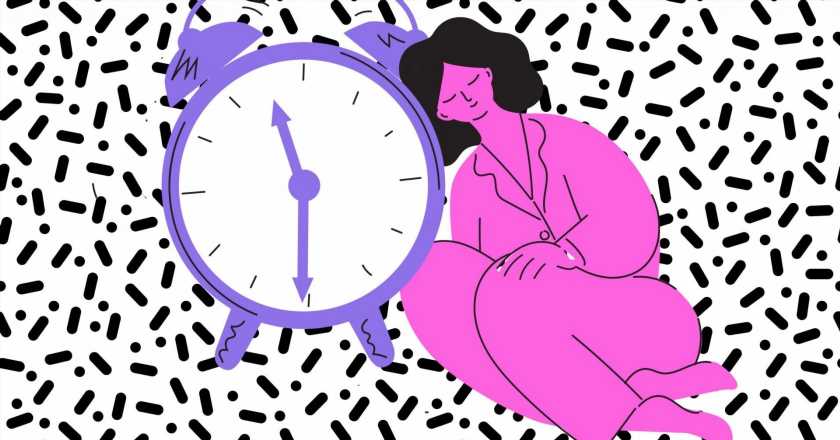This is how much rest we really need – and how to make sure we get it
It’s an age old question, and in a year like 2023, we’re craving rest more than ever. But how much do we really need to stay healthy?
When you wake up on a typical early spring morning, how rested do you feel? Are you one to jump straight out of bed and into the day, or do your limbs feel sluggish and eyelids glued together? While rest is something we all resolve to incorporate more into our daily routines, after a few busy work weeks or a packed-out social calendar, few of us make it a priority, perhaps because we’re not quite sure exactly how much we need. In fact, in 2016, the world’s largest online sleep study revealed we’re a sleep-deprived nation, with 77% of people in the UK failing to wake up refreshed.
After all, experts say it’s not really possible to ‘bank’ sleep in quiet periods to then reserve until we’re rushed off our feet and use up when things get hectic. And sleep debt is a very real thing. Because here’s the thing: the stress of modern life may be inevitable, but it’s not necessarily entirely bad. However, stress without adequate recovery is both damaging and avoidable.
You may also like
Stylist Restival 2023: Your invite to our annual festival of rest
So, how much rest do you actually need?
In Burnout: The Secret To Solving The Stress Cycle, behavioral scientist Emily Nagoski and her twin sister Amelia Nagoski theorised that42% is the necessary portion of the day we need to rest to function optimally, working out at around 10 hours per day dedicated to rest in its various forms. But before you start to panic, you don’t need to get 42% rest every day, but you do need to balance it out over several days in order to feel the maximum benefit.
“We’ve established by now that stress is a physiological phenomenon that impacts every system and function in our bodies, including immune functioning, digestive functioning and hormones,” Nagoski wrote. “To keep all of those systems in full working order, our biology requires that we spend 42% of our lives maintaining the organism of our physical existence.”
Of course, you can get by with less rest for short periods, but it’s not recommended and will catch up with you eventually as you pay the price in decreased performance and physical illness. We’re all capable of pushing through exhaustion to meet an urgent deadline or finish a project, but it shouldn’t be a long-term strategy for wellbeing.
Is the amount of rest you need different for everyone?
It goes without saying the amount of rest required depends on your individual needs. When we don’t sleep well, feel stressed or have a busy schedule, we might feel like we need more frequent breaks. What’s most important, though, is that we allow our bodies adequate time to activate its healing cascade and return to a state of homeostasis, when your body can repair and recover. According to the experts at coaching platform BetterUp, focused attention on a task uses about 5% of the body’s energy, whereas rest utilises about 20% of the body’s energy. So your rest, in whatever form it takes, should aim to replenish that.
Rest can also be difficult to define because it looks different for everyone. In her book Sacred Rest: Recover Your Life, Renew Your Energy, Restore Your Sanity, physician Dr Saundra Dalton-Smith identified seven types of rest: creative, mental, physical, social, emotional, sensory and spiritual rest.
While you’ll probably need a little bit of all the different types of rest in order to function well, certain people will need certain types of rest more often than others. What type this is – and how much of it you need – will depend on the types and quantity of energy you expend on a daily basis.
You may also like
Burnout: the 7 types of rest everyone needs – and how to get them
Rest can also be defined as any behavior aimed at increasing physical or mental wellbeing. It can be active, such as going for a walk outside, or passive, such as taking 10 minutes to sit down and breathe deeply. Sleep, on the other hand, is an essential function of the body and impacts every system from our cognitive function to our immune health. Good quality sleep – aka a recommended seven to nine hours of sleep per night – is vital to brain function, memory, concentration, immune health and metabolism. Because unlike rest, sleep is something your body cannot function without.

How to make sure you’re getting enough rest
Even when it feels like you simply don’t have time, best practice is always to find small ways in which you can incorporate rest and relaxation into your daily routine. After all, we make time every day to eat, move, complete errands and go to work. Why should rest be any different?
To follow the 42% rule, Nagoskisuggests that it could be broken down into:
- Eight hours of sleep opportunity, give or take an hour
- 20 to 30 minutes of “stress-reducing conversation” with your partner or other trusted loved one
- 30 minutes of physical activity
- 30 minutes of paying attention to food
- A 30-minute wild card, depending on your needs (this could be anything from preparing for sleep to social time)
While these are just averages, it’s important to tweak them accordingly to make them work for you and your lifestyle – and R&R your priority.
Images: Getty
Source: Read Full Article
